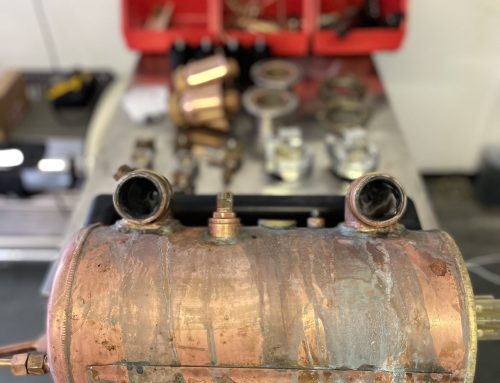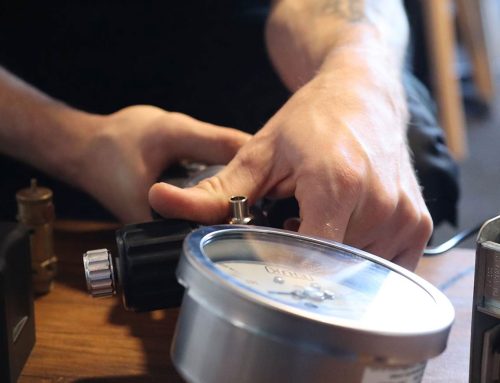1, Get into the habit of cleaning your machine every day.
At the end of the day, it’s easy to flush the group head, empty the drip tray and call it a night. But this is not enough to keep your machine clean.
- Carry out a full clean of the group heads with a brush to remove any coffee grounds so they don’t build up and cause a blockage.
- Remove the portafilters, filter basket and drip tray. Give them a good clean before repositioning them back.
- Clean the steam wand. It goes without saying that the build of milk can eventually become unhygienic, but also prevents your wand from performing it’s best. Make sure all milk residue is off.
- Finally, if you ever experience those ‘water leaks’, well your drain hose is probably the culprit. Much like the group heads, coffee grounds can gather in the pipe and cause a blockage, meaning you’re left with excess water and nowhere for it to go! Give it a rinse through to remove any built-up coffee grounds.
2, Service your machine.
It’s easy to forget a service, I mean the coffee machine works fine, right? Until it doesn’t. Much like your cars need a service to keep them ticking along. There are parts in your coffee machine that wear away with use and will need replacing every now and then to keep a consistent cuppa. A service looks after the gaskets, switches, boiler, water temperature, and flow rates. So, all the things you need to make a cup of coffee! Book a service, it’s worth it.
3, Turn the machine off.
There is no good to come from leaving a coffee machine on all night (well, you might get a longer lay in the next morning), but all it will do is waste electricity keepings itself warm all night, which will only use unnecessary energy and begin to wear components away inside the machine. It’s good to have a break, give your machine one.
4, Book your annual service.
Not only is this a legal requirement under PSSR regulations, but it could save your life. The full works service takes care of everything that the machine may have worn away over the year of making all those lattes. From pressure safety valves to solenoids and motors, this will make sure all those inner workings are running safely and as they should.
5, Descale
In hard water areas especially, machines will begin to line themselves with limescale – a mix of calcium and magnesium from evaporated water. Whilst we may be used to seeing build up in the kettles at home, it builds up in all the little parts of your coffee machine too, which is why it is so important to descale to keep everything running smoothly and avoid blockages!
Common Problems for your Espresso Machine
There are many common issues that can crop up in an espresso machine. Let’s face it, in a working environment it can be producing hundreds of drinks a day. That will eventually take a toll on the inner workings of your machine. So, let’s take a look at some common issues that may crop up.
The steam nozzle is not working.
- Check that the steam knob is turning and hasn’t broken.
- Check that the pressure gauge is displaying the correct pressure.
- Make sure the nozzle is cleaned and that there are no blockages.
There is a leak!
- Check the drain hose is clear of any blockages.
- Check your input water supply.
- Check your drip tray for blockages.
No hot water!
- Check that your machine is at the correct pressure needed.
- Check your boilers level.
- Have you descaled recently?
My coffee is bitty!
- Make sure the seal on the portafilter is sealed.
- Make sure your grind isn’t too fine.
- Check is your filters are intact and don’t need replacing.
My coffee tastes off.
- Make sure you removed all the old coffee in the filter before adding more.
- Check your grind is correct.
- How fresh are your beans?
It’s really important that you regularly clean and descale your machine to ensure clean pipework and that no debris causes blockages to outer parts. If you fail to look after your machine, it will deteriorate quicker than usual and you may find you burn out internal parts of the machine, resulting in costly fixes.



